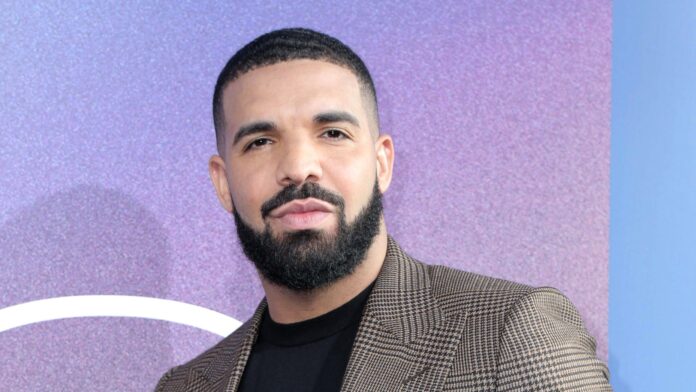A US district court judge has approved Drake’s motion to subpoena a man his lawyers claim “possesses knowledge” in his defamation lawsuit against Universal Music Group.
Judge Jeannette Vargas of the US District Court for the Southern District of New York granted Drake‘s “motion for alternative service” on Kojo Menne Asamoah, allowing the rapper’s legal team to serve legal papers to Asamoah and his business ventures.
The rapper’s attorneys claimed they have spent $75,000 trying to track down the witness. According to the latest court document, which you can read in full here, the rapper’s team made 11 attempts to serve Asamoah at various addresses, hiring both process servers and a private investigation firm.
Despite weeks of surveillance across multiple locations, investigators could not locate Asamoah in person, prompting Drake’s request for alternative service methods, according to the court document filed August 6.
The approved service methods include mailing copies of the subpoena to five physical addresses connected to Asamoah, his family members, and business ventures. Drake’s team can also email the subpoena to three addresses linked Asamoah, which attorneys confirmed remain active.
“Plaintiff alleges that Mr. Asamoah ‘possesses knowledge relating to UMG’s use of covert tactics to promote the Defamatory Material.’”
Jeannette Vargas, US District Court Judge
Judge Vargas wrote: “Plaintiff alleges that Mr. Asamoah ‘possesses knowledge relating to UMG’s use of covert tactics to promote the Defamatory Material, including because Plaintiff believes that Mr. Asamoah was involved in directing payments and/or financial incentives from UMG to third parties involved in online botting for the purpose of artificially inflating the streaming numbers of the Recording.’”
The ruling is part of Drake’s high-profile defamation case against UMG, filed in January, over Kendrick Lamar’s diss track Not Like Us, arguing that UMG “decided to publish, promote, exploit and monetize allegations that it understood were not only false, but dangerous.”
Lamar’s music is distributed by UMG’s Interscope label, while Drake is signed to UMG’s Republic Records.
In April, Drake amended his lawsuit with new claims targeting Lamar’s Not Like Us performance during the Super Bowl LIX halftime show. The 107-page filing now references the NFL’s decision to censor the words “certified pedophile” from the performance in February. Drake’s legal team argued that while the televised performance censored the word “pedophile,” no other modifications were made.
“Plaintiff believes that Mr. Asamoah was involved in directing payments and/or financial incentives from UMG to third parties involved in online botting for the purpose of artificially inflating the streaming numbers of the Recording.”
Jeannette Vargas, US District Court Judge
The halftime performance, broadcast by Fox, was the most-watched of all time, with 133.5 million views, according to Billboard.
UMG described Drake’s defamation suit “one absurd legal step after another.” The music giant pointed to a pattern of legal actions by Drake’s team, noting that proceedings initiated “with much fanfare and bluster” in Texas last November were “quietly dropped” in April.
UMG also highlighted that Drake has withdrawn certain allegations from his original January filing, potentially to avoid court sanctions for “asserting false allegations.”
The music company filed a motion to dismiss the amended lawsuit in May, arguing that the lyrics are “nonactionable opinion and rhetorical hyperbole” rather than assertions of fact.
In a statement issued to MBW in May, a UMG spokesperson slammed “the hundred-plus page ‘legal’ blather written by Drake’s lawyers”.
They added, however, that UMG “remain[s] committed to propelling Drake’s career while maintaining our unwavering support of all our artists’ creative expression. Drake’s included.”
About a week later, a group of academics urged the court to dismiss the case against UMG, arguing that taking rap lyrics as factual threatens freedom of speech and risks a miscarriage of justice.
Four scholars, all linked to the University of California–Irvine, warned of “the harms that arise when courts treat rap lyrics confessions or factual representations,” according to a proposed amicus brief on May 14.
Music Business Worldwide


